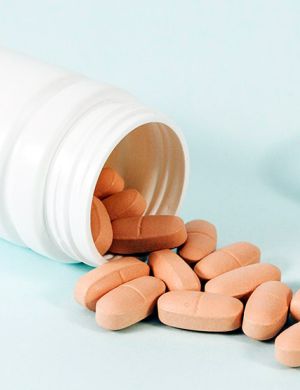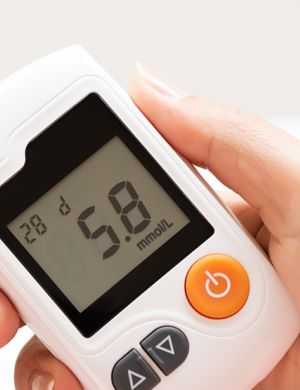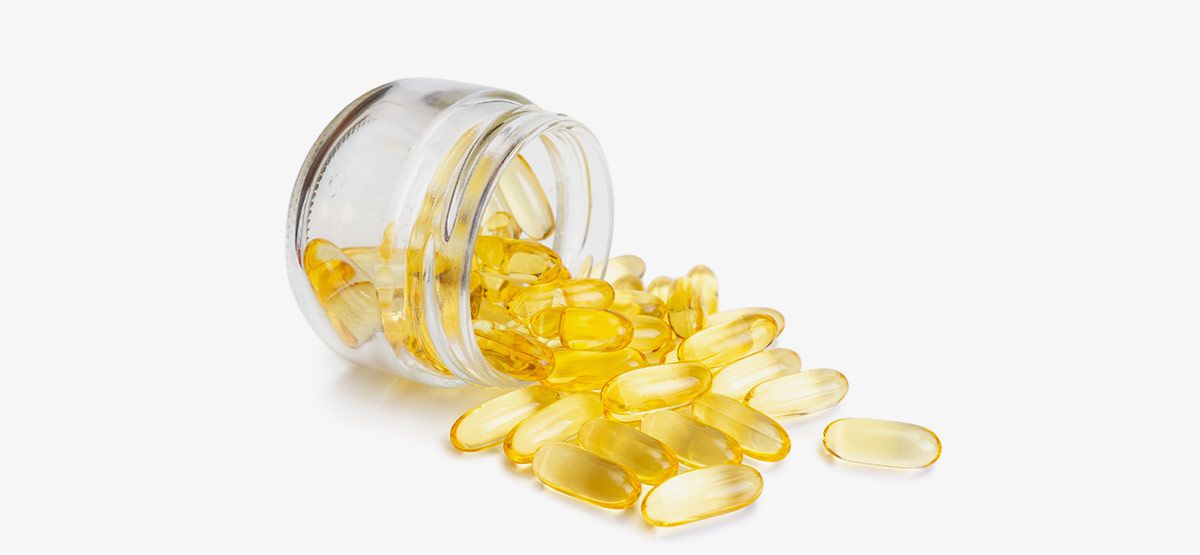
Consumer Health – USA, Asia and ROW Regulatory News – June 2025
USA
FDA Releases 2025 Human Foods Program Guidance Agenda – June 30, 2025
The FDA’s Human Foods Program has published its proposed 2025 guidance agenda, outlining key topics it plans to address or update this year. Notable new topics include:
- Draft guidance on action levels for opiate alkaloids in poppy seeds
- Guidance on natural food color additives from fruit and vegetable juices
- Updates on New Dietary Ingredient (NDI) notifications, focusing on identity and safety data
These guidance documents reflect FDA’s current thinking and help industry prepare for possible regulatory changes, though they are not legally binding.
FDA Updates General Food Labeling Requirements Compliance Program – June 24, 2025
The FDA has updated Compliance Program 7321.005, now titled General Food Labeling Requirements and Labeling-Related Sample Analysis – Domestic and Import. This revision replaces the 2010 version and reflects current labeling regulations, enforcement priorities, and operational guidance.
The updated program enhances oversight of both domestic and imported food labeling, ensures truthful and non-misleading labels, and supports consistent enforcement. Key changes include the addition of sesame as the 9th major allergen (per the FASTER Act of 2021), updated guidance on gluten-free labeling, and alignment with the 2016 Nutrition Facts label updates.
FDA Releases Key Educational Materials on NDIN Process – June 11, 2025
The FDA has released two short videos and a fact sheet to help dietary supplement manufacturers and distributors better understand the New Dietary Ingredient Notification (NDIN) process.
Why It Matters:
- NDIN is required before marketing certain new dietary ingredients.
- It’s the FDA’s only chance to review safety before a product reaches consumers.
What’s Included:
- Video 1: Highlights common NDIN submission mistakes that cause delays.
- Video 2: Explains what to expect during FDA–notifier communication.
- Fact Sheet: Summarizes key tips for a successful NDIN.
These materials aim to improve submission quality and speed up FDA review.
FDA Seeks Public Input on New Chemical Ranking Method for Food Safety – June 18, 2025
The FDA has proposed a new science-based method to rank chemicals in the food supply for post-market safety assessments and is now seeking public comments. Using Multi-Criteria Decision Analysis (MCDA), the method prioritizes chemicals—both added and contaminant—based on potential health risks, especially to sensitive populations. This structured approach helps the FDA focus resources on chemicals of highest concern. Public comments are invited through July 18, 2025, via docket FDA-2025-N-1733. Feedback will guide further review by external experts.
ARGENTINA
ANMAT Bans Various Dietary Supplements From The Natulife Brand
On June 19, 2025, ANMAT (Argentina’s National Administration of Drugs, Food and Medical Devices) issued Regulation No. 4174/25, banning the production, packaging, and marketing of several Natulife brand dietary supplements nationwide. The affected products—Magnesium Citrate, Potassium Citrate, Ascorbic Acid (Vitamin C), and Hydrolyzed Collagen powders—were found to be illegally marketed, lacking valid health registrations and bearing false labeling. Labels included misused RNEs, RNPA numbers belonging to other products, and fabricated registration details. The ban applies to all batches and expiration dates.
ANMAT Bans The Product Colloidal Silver Forte, Antiviral, Antibacterial, Antimicrobial
On June 19, 2025, ANMAT issued Provision No. 4166/25 banning the use, marketing, distribution, and advertising of all batches of the product “Colloidal Silver Forte, Antiviral, Antibacterial, Antimicrobial,” produced by GRUPO BIO FIT SRL in Santa Fe. The ban applies nationwide and to online sales platforms. The product and the establishment were found to be unregistered with ANMAT, and the manufacturer had been deregistered by the Santa Fe Food Safety Agency.
AUSTRALIA
Call for Comment: Proposed Use of 3-Fucosyllactose (3-FL) in Infant Formula
FSANZ invites public feedback on an application to permit 3-Fucosyllactose (3-FL), a human-identical milk oligosaccharide made using genetic modification, for use in infant formula. The substance mimics natural compounds in breast milk and has shown potential gut health benefits. Safety assessments found no health concerns.
Media Statement: FSANZ Approves Updated Definitions for Genetically Modified Food
FSANZ has modernised the definitions of genetically modified (GM) food in the Food Standards Code to reflect scientific advances and support regulatory clarity. The new outcome-based definitions align with global standards, enhance transparency, and maintain strong safety protections. Existing GM food labelling and safety requirements remain in place.
BRAZIL
Public Consultation Deadline Extended for Food Ingredient Specifications in Brazil
The Brazilian Health Regulatory Agency (Anvisa) has announced a 45-day extension for submitting contributions to two key public consultations related to food ingredient specifications:
- Public Consultation 1,324/2025 – Proposes a Normative Instruction defining identity, purity, and composition standards for food ingredients authorized for use in foods.
- Public Consultation 1,325/2025 – Proposes amendments to:
- RDC 243/2018, which outlines health requirements for food supplements.
- RDC 839/2023, concerning the safety evaluation and authorization of new foods and ingredients.
- Normative Instruction 28/2018, which provides lists of ingredients, usage limits, health claims, and complementary labeling for food supplements.
These consultations were originally launched on May 2, 2025, and the extended deadline is intended to foster broader public participation and debate. Anvisa’s objective is to further modernize the regulatory framework, streamline procedures, and ensure the rules are aligned with public health and innovation goals.
Stakeholders are encouraged to participate actively to help shape effective and science-based regulations for Brazil’s food sector.
Anvisa Orders Recall and Suspension of Protein Supplement and Cinnamon Powder
On June 23, 2025, Anvisa published measures in the Official Gazette of the Union ordering the recall and suspension of two food products due to non-compliance with safety and labeling regulations.
The first case involved the 100% Full Whey protein supplement by Fullife Nutrition (batch 2408J5), produced by SFS Alimentos Ltda. Laboratory analysis found the presence of gluten (wheat, rye, and barley), contradicting its labeling claims, along with unauthorized and misleading health claims.
The second product was Chinese Cinnamon Powder (batch 371LAG2419), Kinino brand, manufactured by HL do Brasil Indústria e Comércio de Produtos Alimentícios Ltda. The analysis revealed the presence of starch, which is not characteristic of cinnamon, and unsatisfactory results for histological elements and foreign matter, violating health regulations.
Both assessments were conducted by the Ezequiel Dias Foundation (Funed). The recall and suspension were enacted to protect public health and ensure compliance with food safety standards.
Three More Olive Oil Brands Banned By Anvisa For Irregularities
On June 6, 2025, Anvisa announced the prohibition of three olive oil brands due to serious regulatory violations. The ban applies to all batches of the following brands:
- Serrano (imported by Intralogística Distribuidora Concept Ltda., CNPJ: 72.726.474/0002-07)
- Málaga (imported by Cunha Importação e Exportação Ltda., CNPJ: 34.365.877/0001-06)
- Campo Ourique (imported by JJ – Comercial de Alimentos Ltda., CNPJ: 37.815.395/0001-90)
These products were found to have:
- Unsatisfactory results in physical-chemical and labeling tests conducted by Lacen-RJ (Noel Nutels Central Public Health Laboratory)
- Closed or invalid CNPJ registrations
- Unknown or unverified origin
Due to these findings, the marketing, distribution, manufacturing, importation, advertising, and use of these oils are strictly prohibited. Authorities have been instructed to seize existing stocks, and consumers are advised not to consume them, as there is no assurance of their safety or quality.
Digital Transformation of Certificate Issuance by Anvisa
Anvisa has begun implementing a digital transformation in the issuance of certificates and certifications for registered and notified health-regulated products. The process is now fully electronic and self-service through the Solicita system, starting with export certificates for cosmetics. Additional categories will be included throughout 2025. Users can apply, pay fees, and access issued documents entirely online. The new system also includes a validation feature via QR code or manual input, ensuring authenticity and accuracy. This move aims to streamline regulatory procedures, reduce processing time, and improve service efficiency for companies and consumers.
CHINA
China NMPA Issues New Provisions to Support Innovation in Cosmetic Raw Materials – June 11, 2025
The National Medical Products Administration (NMPA) has released the Several Provisions for Supporting the Innovation on Cosmetic Raw Materials to promote high-quality development in the cosmetics industry. Effective immediately, these regulations aim to encourage innovation while aligning with China’s broader regulatory framework under the Regulations on Supervision and Administration of Cosmetics.
This move reflects the government’s focus on advancing cosmetic science and safety, and fostering the development of new, innovative raw materials in the sector.
INDIA
FSSAI Updates List of Approved Labs for Fortified Rice Testing – June 6, 2025
FSSAI has released a revised list of NABL-accredited labs authorized to test fortificants in Fortified Rice (FR), Fortified Rice Kernels (FRK), and premixes. The list includes labs across India for analyzing iron, folic acid, and vitamin B12, ensuring quality control in rice fortification programs. Stakeholders must verify lab accreditation validity before submitting samples.
FSSAI Extends NOC Validity for Imported Alcoholic Beverages – June 5, 2025
FSSAI has extended the validity of No Objection Certificates (NOC) to 365 days for imported alcoholic beverages bottled in origin or in bulk containing over 10% alcohol and having no expiry date, under the FSS (Import) Regulations, 2017. For consignments held at ports beyond 365 days, revalidation may be allowed via visual inspection upon payment of the fee. This move aims to ease business operations while maintaining food safety standards. The order supersedes previous directions and is effective immediately.
JAPAN
Japan MHLW Releases Radioactive Material Test Results in Food – June 2025
On June 24, 2025, Japan’s Ministry of Health, Labour and Welfare (MHLW) published Report No. 1449 on the testing of food for radioactive materials, in response to the Fukushima nuclear accident. The report includes:
- 2 samples exceeding safety standards:
– Koshiabura from Nagano Prefecture recorded 160 Bq/kg and 110 Bq/kg of Cesium (Cs), surpassing the regulatory limit. - No exceedances were found in samples tested from Fukushima Prefecture or by the National Institute of Health Sciences.
This ongoing monitoring ensures the safety of food distributed across Japan and maintains public health protection in areas affected by the Fukushima incident.
Japan Sets PFAS Limit in Bottled Water Under Revised Food Standards
On June 30, 2025, the Japanese government issued an amendment to its Food Sanitation Law standards, formally establishing a limit on PFAS—specifically PFOA (Perfluorooctanoic acid) and PFOS (Perfluorooctanesulfonic acid)—in bottled mineral water that undergoes sterilization or disinfection.
Under the revised standards:
- The combined concentration of PFOA and PFOS must not exceed 0.00005 mg/L (50 nanograms per liter).
- This new limit applies to mineral water products classified as soft drinks and treated by sterilization or disinfection.
- The change is part of a broader effort to strengthen safety measures in response to rising health concerns about PFAS, often referred to as “forever chemicals” due to their persistence in the environment and the human body.
Transition Period:
Products manufactured or imported before April 1, 2026, may still be processed and sold under the old standards.
Consumer Affairs Agency Notification on Approval of Specific Health Foods (June 30, 2025)
On June 30, 2025, Japan’s Consumer Affairs Agency (CAA) announced the approval of seven new Specific Health Foods (Tokutei Hoken Yō Shokuhin) under the Health Promotion Act. The approved products are: Kirin Healthy Tea Green Tea, Kirin Healthy Tea Green Tea Umami Premium, Kirin Healthy Water, Konjac Jelly Light Grape Flavor, Soy Milk Power Plain, Soy Milk Power Blueberry, and Erina Fruit and Vegetable Powder.
These products have been authorized to carry specific health claims such as promoting fat metabolism, reducing cholesterol, and supporting digestive health. The notification ensures consumers can rely on the safety and effectiveness of these health food products.
Consumer Affairs Agency Issues PFAS Risk Communication Guidance (June 26, 2025)
On June 26, 2025, the Consumer Affairs Agency of Japan released a notification outlining new guidelines for risk communication related to PFAS (Perfluoroalkyl and Polyfluoroalkyl Substances) in food products. This document responds to growing health concerns and is based on scientific evaluations conducted by the Food Safety Commission of Japan (FSC).
The FSC has established a tolerable daily intake (TDI) of 20 nanograms per kilogram of body weight per day for PFOS and PFOA, two of the most studied PFAS compounds. The notification encourages government agencies and stakeholders to enhance data collection, monitor PFAS levels in food, and provide clear and accurate information to the public.
These guidelines emphasize transparent risk communication and support Japan’s broader regulatory efforts to control PFAS exposure through food and environmental sources.
Approval of Special Purpose Food for Swallowing Ease: “Toromi-na Soft Type” Thickener
The Japanese Consumer Affairs Agency approved a special dietary food product called Toromina SoftType by Well Harmony Co., Ltd. This product is a thickening agent designed to help people with swallowing difficulties by adding thickness to water, tea, or soups. It helps make swallowing easier and prevents choking or aspiration. Foods like this require government approval for their labeling to be marketed as suitable for specific health-related purposes.
MALAYSIA
Public Consultation on Proposed Amendments to Food Regulations under the Food Act 1983
The Ministry of Health Malaysia (MOH) is inviting public feedback on proposed amendments to several regulations under the Food Act 1983. This initiative reflects the government’s ongoing commitment to transparency and stakeholder engagement in the regulatory process.
The proposed amendments affect the following areas:
- Twelfth Schedule A, Food Regulations 1985
- Commodity regulations for sweeteners, cocoa products, milkshakes, and packaged drinking water
- Food Irradiation Regulations 2011
- Food (Food Analysis Fee) Regulations 2016
Members of the public, industry stakeholders, and interested parties are encouraged to review the draft amendments and submit their feedback via the online form
Closing date for feedback: 19 July 2025
MEXICO
COFEPRIS and the Ministry of Health Launch Major Modernization of Mexico’s Federal Health System
On June 30, 2025, Mexico’s Ministry of Health and COFEPRIS inaugurated the National Meeting of the Federal Sanitary System and the Third National Week against Health Risks, aimed at reinforcing collaboration between federal and state health authorities. Health Secretary David Kershenobich emphasized the importance of a strong, modern regulatory system, addressing critical issues like counterfeit medical products, regulation of beauty establishments, and modernization of public health labs.
As part of the initiative, Coordination Agreements with all 32 states were updated for the first time in over two decades, boosting regulatory agility and shared accountability. COFEPRIS conducts over 318,000 inspections annually, covering food, pharmaceuticals, toxic substances, and more. It also operates 16 priority health programs, including monitoring water and ice quality on public beaches and ensuring food safety.
PAHO/WHO representative José Moya commended COFEPRIS for its leadership in the region and reaffirmed PAHO’s technical support, calling the modernization a vital part of Mexico’s national health strategy, Plan Mexico.
NIGERIA
Public Alert No. 018/2025: Ban on Dove Soap & Deodorants Due to Harmful Chemical (BMHCA)
NAFDAC warns against the sale and use of specific Dove products found to contain Butylphenyl Methylpropional (BMHCA), a banned substance linked to reproductive harm and skin sensitization. Affected products are unregistered and prohibited in Nigeria.
Public Alert No. 20/2025: Unregistered Fair Child Soap Found in Nigerian Markets
NAFDAC warns against the sale and use of Fair Child Soap, an unregistered imported skin-lightening product marketed for children. The product poses serious public health risks and has been found in retail outlets across Lagos. Distribution has been halted and the marketer sanctioned.
SINGAPORE
Singapore Food Agency Reaffirms Safety Standards for Food Colourings
In response to concerns raised about synthetic food dyes, the Singapore Food Agency (SFA) emphasized that all colourings approved for use in Singapore are assessed for safety. SFA uses a science-based risk management approach aligned with international standards, including assessments by the Joint FAO/WHO Expert Committee on Food Additives (JECFA).
If JECFA assessments are unavailable, SFA refers to scientific studies and evaluations from other developed nations. The agency also reviews its safety standards regularly, keeps track of emerging scientific evidence, and consults with global regulatory bodies to ensure food additives and colourings remain safe for consumers.
Singapore Strengthens Food Resilience Through Diversification and Local Support
In response to public interest about food availability, the Singapore Food Agency (SFA) reaffirmed its commitment to maintaining a stable and safe food supply for the nation. SFA’s multi-pronged strategy includes:
- Diversifying import sources – Singapore currently imports food from 187 countries/regions to reduce reliance on any single source.
- Stockpiling essential items – Key food reserves are maintained in collaboration with industry partners, backed by updated legislation under the Food Safety and Security Act.
- Boosting local production – Though production costs are higher, SFA supports farms through initiatives like infrastructure development, funding via the Agri-Food Cluster Transformation Fund, and promotional efforts such as the Singapore Fresh Produce logo and SG Farmers’ Market.
Notably, local egg farms now supply 34% of Singapore’s egg consumption. While vegetable and seafood production remain at 3% and 6% respectively, both sectors have improved efficiency and yield per hectare.
Recall of Clam Vermicelli Product Over Undeclared Gluten and Wheat Allergens
The Singapore Food Agency (SFA) has issued a recall for Haichijia brand Hua Jia Jiang Hu (Clam Vermicelli) after a notification from New Zealand’s Ministry for Primary Industries revealed the presence of undeclared gluten and wheat allergens.
The product, imported by Hong Xin Da Pte. Ltd., is currently being recalled in Singapore. While gluten and wheat are generally not harmful to the public, they pose serious health risks for individuals with allergies or intolerances. Under Singapore’s Food Regulations, such allergens must be clearly declared on packaging to protect sensitive consumers.
Those with gluten or wheat allergies who have purchased the affected product are advised not to consume it and to seek medical advice if any health concerns arise. Consumers may also contact their place of purchase for further information.
SOUTH AFRICA
SAHPRA Warns Public About Fake Licence Holder
On 11 June 2025, the South African Health Products Regulatory Authority (SAHPRA) issued a public warning about individuals and companies fraudulently claiming to hold SAHPRA licences. These fake licences, often used to mislead the public and operate unethically, pose a serious risk to public health and safety.
SAHPRA urges citizens to verify any SAHPRA-issued licence through its official website or communication channels. To combat the issue, SAHPRA plans to implement a barcode verification system and conduct a public awareness campaign on how to authenticate licences.The Authority is particularly concerned about cannabis dispensaries in shopping malls displaying counterfeit licences that falsely claim to permit cannabis cultivation or export. SAHPRA clarified that such documents do not authorize retail cannabis sales. SAHPRA CEO Dr. Boitumelo Semete-Makokotlela condemned the misuse of its name and assured the public that the agency will work with law enforcement to prosecute offenders. The public is encouraged to report suspected fraud via SAHPRA’s hotline or website.
SOUTH KOREA
South Korea Expands Food Safety Collaboration with Latin America – June 2025
The Ministry of Food and Drug Safety (MFDS) and the Korea Agency of HACCP Accreditation and Services (KAHAS) launched an invitation program from June 9 to 16, 2025, to train 31 food safety officials from eight Latin American countries (Argentina, Brazil, Ecuador, El Salvador, Guatemala, Mexico, Paraguay, and Peru). The program aims to enhance import-export food safety management, promote pre-import controls on major items like chicken, coffee, squid, and avocados, and support K-Food expansion into Latin America.
As part of Korea’s Official Development Assistance (ODA) project (2023–2027), participants receive training on Korea’s food safety system, HACCP, inspection processes, food standards, and foodborne illness prevention. They also visit regulatory labs and food factories and engage in cultural experiences.
A key event is the “Export Support Seminar” on June 11, where Latin American officials will share their countries’ food safety regulations with Korean exporters. Later in 2025, Korea will conduct follow-up visits and K-Food exhibitions in Ecuador and El Salvador to showcase Korean food products and foster trade relationships.
Minister Oh Yu-kyoung emphasized the program’s role in strengthening food safety partnerships and securing safer international food trade.
THAILAND
Official Launch of Thai FDA e-Certificate System
On 25 June 2025, the Thai Food and Drug Administration (FDA), under the Ministry of Public Health, officially launched its electronic certificate (e-Certificate) system for regulated health products. This new system, effective from 1 May 2025, applies to a wide range of products, including Food, medicines, medical devices, cosmetics, hazardous substances, narcotic drugs, psychotropic substances, and herbal products.
The e-Certificate system includes an updated sample certificate format. Stakeholders can access:
- A comprehensive list of available e-Certificates
- The e-Certificate verification system to authenticate issued certificates
VIETNAM
Administrative Sanctions Against FAO Certification and Testing Joint Stock Company
On June 20, 2025, the Food Safety Department issued Decision No. 11/QĐ-XPHC imposing administrative sanctions on FAO Certification and Testing Joint Stock Company. The company was penalized for conducting conformity assessments for state management purposes beyond its designated scope, which constitutes a regulatory violation. The decision became effective immediately upon signing.
Newly Issued and Abolished Administrative Procedures in Food Safety – Decree No. 148/2025/ND-CP
On June 24, 2025, the Ministry of Health issued Decision No. 2076/QD-BYT announcing newly issued and abolished administrative procedures in the field of food safety as stipulated under Decree No. 148/2025/ND-CP dated June 12, 2025. This Decree governs decentralization and delegation within the health sector under the Ministry’s management.
Specifically, the Decision announces 12 newly issued and 16 abolished administrative procedures in the area of food safety. These changes will take effect from July 1, 2025.The newly announced procedures also render obsolete several prior regulations, including:
- Decision No. 4694/QD-BYT, dated November 4, 2015,
- Decision No. 2318/QD-BYT, dated April 6, 2018,
- Decision No. 4630/QD-BYT, dated July 24, 2018,
- Decision No. 135/QD-BYT, dated January 15, 2019,
- Decision No. 1181/QD-BYT, dated March 29, 2019,
- Decision No. 852/QD-BYT, dated March 12, 2025.
This update reflects the Ministry’s ongoing efforts to streamline food safety regulations and improve administrative efficiency.
Recall of Counterfeit Health Protection Food Product “Hai Be Delicious Syrup”
On June 20, 2025, the Food Safety Department announced a nationwide recall of the health protection food product Hai Be Delicious Syrup due to counterfeit concerns. According to an appraisal by the Ninh Binh Provincial Police, key active ingredients such as Vitamin A, Calcium, and Vitamin C were found to be below 70% of the declared amounts, significantly undermining the product’s efficacy. Following this, the Ninh Binh Police have launched an official investigation under the 2015 Penal Code.
The Food Safety Department has instructed provincial and city health authorities, as well as food safety management boards, to:
- Review and inspect the market, coordinate with local authorities to recall all counterfeit Hai Be Delicious Syrup products, and cooperate with the investigation to enforce legal actions.
- Continue implementing directives from the Prime Minister aimed at combating the production and distribution of counterfeit medicines, fake onions marketed as health products, and other fake health protection foods.
This move underscores the government’s commitment to protecting consumers and ensuring food safety in the health product sector.
Revocation of Health Supplement Product Declarations
On June 20, 2025, the Food Safety Department of Vietnam announced the revocation of product declaration certificates for several health supplement products from four companies due to regulatory non-compliance. The decisions involved:
- MAX WINNER Joint Stock Company: One product, SAFFRON MAXWINNER, had its certificate revoked under Decision No. 295/QD-ATTP.
- Kim Natural Cosmetics Co., Ltd.: Three products lost their certificates as per Decision No. 305/QD-ATTP.
- Linh Chi Korea Investment and Development Joint Stock Company: Fifteen products were affected, according to Decision No. 301/QD-ATTP.
- Solife Trading and Service Co., Ltd.: Two products had their certificates revoked, also under Decision No. 301/QD-ATTP.
This regulatory action is part of ongoing efforts to ensure food safety and product transparency in the health supplement sector.
Don’t miss out! Click here to stay in touch.
Categories
- Biopharma (59)
- Consumer Health (22)
- Cosmetics (11)
- Diagnostics (5)
- Digital Health (8)
- Food (2)
- Medical Device (113)
- OTC (5)
- Regulatory Intelligence (13)
- Standards (41)
Recent Blogs
Get the latest updates from Vistaar

Related Posts
CONNECT WITH US

Let's talk about how Vistaar can help you





